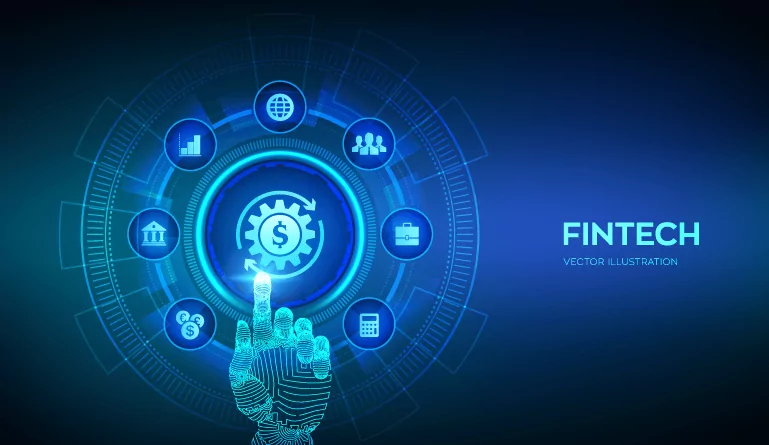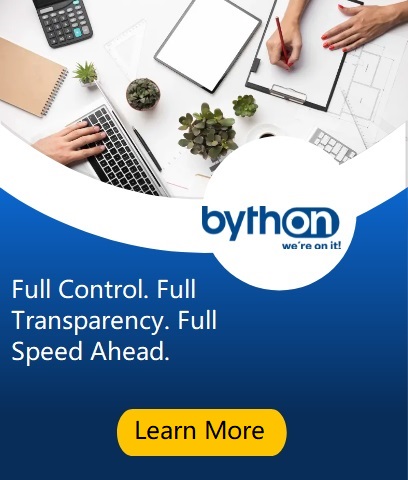The last two years can be arguably called the “fintech boom.” Consumers worldwide adopted contactless payments at scale and switched to e-commerce, even for essential goods. Meanwhile, the hype around crypto and the metaverse has created further momentum for fintech solutions. Given that virtually every company wants a piece of the pie, how do you democratize fintech adoption and make it easily accessible on any platform? That’s where fintech-as-a-service or FaaS comes in.
What is Fintech-as-a-Service? Explained with Example
The term “fintech” refers to financial technology. Essentially, it is a software application designed to automate and enhance the experience of customers accessing financial services, as well as simplify the administration of financial operations for business owners.
Providing financial technology as a service is referred to as “fintech-as-a-service.” This service’s technology provider is solely accountable for the platform’s development, maintenance, updates, compliance with security requirements, etc. The user (another service provider) simply embeds the fintech feature into their platform through an application programming interface (API). They pay a monthly subscription fee for the API without investing in the infrastructure.
APIs allow many computer programs to interact with each other. It is a type of software interface that provides a service (FaaS) to other software applications (i.e., the platform embedding fintech).
Let us understand the meaning of “fintech-as-a-service” with an example. Vacation rental business Airbnb collaborates with PayPal to provide its customers with more online and in-app payment alternatives. Therefore, PayPal provides Airbnb with FaaS technology via a single connection.
FaaS solutions comprise white-label e-wallet systems, card issuance, payment acceptance, payouts or remittance, identity verification, fraud protection, virtual account as well as merchant services, as well as provisioning, administering, and reporting solutions.
Benefits of FaaS
By incorporating FaaS, businesses may decrease the timeframe for the complete financial process and vastly improve customer experience.
Numerous businesses are now adopting FaaS — driven by a truly compelling reason, to improve customer happiness and retention. Compliance with the law and robust security procedures are additional advantages. Using FaaS, both financial and non-financial organizations can digitize their financial activities and provide customers with easy access to loans and services.
FaaS automates and optimizes financial operations, eliminates unnecessary paperwork, and minimizes human intervention. By integrating robotic process automation (RPA) with FaaS, businesses may free up employee time for other important tasks. As a consequence, procedures are simplified, document analyses are exhaustive, and outcomes are achieved swiftly.
Some of the other key benefits of using fintech-as-a-service include:
- Add your own branding: Customers may modify the look and feel of the platform without allowing their end users to know that it is backed by an independent FaaS provider.
- Save on maintenance costs: 100% of the accountability for keeping the platform active rests on the technology provider.
- Prevent fraud: Instead of establishing their own payment gateways and dealing with a fair amount of red tape, businesses may choose a FaaS platform that is already compliant with the most stringent security requirements, like PCI DSS (Payment Card Industry Data Security Standard).
- Launch digital systems faster: Utilizing a third-party payments system to establish payment flow as well as bringing a product to market is significantly faster than designing the system from scratch.
- Reduce processing fees: FaaS solutions allow retailers to route transactions via different payment service providers. This allows businesses to select suppliers who offer the most advantageous terms for every given transaction.
- Customize as you please: In most cases, FaaS systems are readily adaptable and designed and managed by experienced and competent professionals.
Is Fintech-as-a-Service Regulated?
National and international bodies supervise fintech-as-a-service solutions to ensure they adhere to data protection best practices and avoid money laundering and fraud.
All financial institutions should comply with the Financial Conduct Authority in the United Kingdom (FCA). All money services businesses (MSBs) in the United States must enroll with the Financial Crimes Enforcement Network (FinCEN). The General Data Protection Regulation (GDPR) is applicable in Europe to all businesses and fintech firms that gather and retain consumer data.
When developing APIs, many fintech businesses utilize regulatory technology (RegTech) to assure compliance without increasing costs. This assures legal compliance with all legislation, respects clients’ privacy preferences, and automates the production of mandatory reports.
4 Levers of FaaS Success
There is a reason for fintech-as-a-service or FaaS’s meteoric rise at this moment. In addition to favorable market circumstances, there are four factors contributing to the success of FaaS:
1. Interoperability for global payments
Global penetration of standard payment mechanisms such as credit cards remains very low. Billions of users use alternative payment methods, including cash, bank transfers, e-wallets, and local debit networks. Fintech-as-a-service has significant potential in the fragmented world of local payments. APIs allow FaaS to resolve the problems of managing local payments.
2. Unification of the fintech stack
To render FaaS implementation fast and simple, a single, integrated technological stack created from the bottom up is necessary. This will enable product managers as well as developers to create localized, high-quality user experiences for both domestic and international commerce. FaaS consolidates the financial planning, payment, and money transfer capabilities that contemporary enterprises use to develop efficient apps via a single, universal, scalable API.
3. A global payment network
With a consolidated stack at your command, the next step is to choose expansion and scaling strategies. This requires a broad, dependable payment network that supports multiple payment methods. These means of payment comprise cash, bank transfers, e-wallets, as well as local debit systems. FaaS providers like PayPal, Rapyd, etc., have built global networks compatible with local payment methods to drive fintech-as-a-service adoption.
4. The rise of advanced technologies like AI
FaaS market growth is expected to be driven by the global use of sophisticated technologies like AI, cryptocurrency, open banking, speech bots, prescriptive analytics, cloud or big data analytics, as well as digital payments. Individuals and businesses may digitally save, invest, borrow, and transfer cash as a result of these financial innovations. For instance, banks may engage with a FaaS platform to action predictive modeling, which will collect and analyze a customer’s data across multiple sectors and deliver recommendations.
State of the Fintech-as-a-Service Market
The worldwide market for FaaS startups is projected to hit $161 billion by 2026, according to an IndustryARC report.
Globally rising acceptance of FinTech solutions and platforms is anticipated to fuel market expansion. Moreover, the advent of artificial intelligence, cloud-based software, with big data linked to financial services will accelerate the expansion of FaaS. The increasing use of cell phones for online purchases is expected to offer a significant boost for fintech-as-a-service.
Some of the top startups in this segment include:
- Rapyd: Rapyd, a startup established in the United Kingdom, creates worldwide digital wallets. Through the application programming interface (API) of the startup, companies accept hundreds of global payment methods.
- FISPAN: The Canadian startup FISPAN offers services for embedded platforms. The company enables banks to develop digital communication channels that are branded and fully integrated.
- Neo Mena: Neo Mena Technologies, an Emirati start-up, offers comprehensive investing services. This consists of a complete digital investment solution as well as a suite of mobile-first user applications featuring integrated sales and administrative functionalities.
Suffice it to say, fintech is now a force to reckon with in the technology ecosystem, and FaaS is opening fintech access to companies worldwide, regardless of size or availability of resources. In fact, the most recent fintech trend that transformed shopping experiences in the holidays – BNPL – was powered mostly by FaaS.





